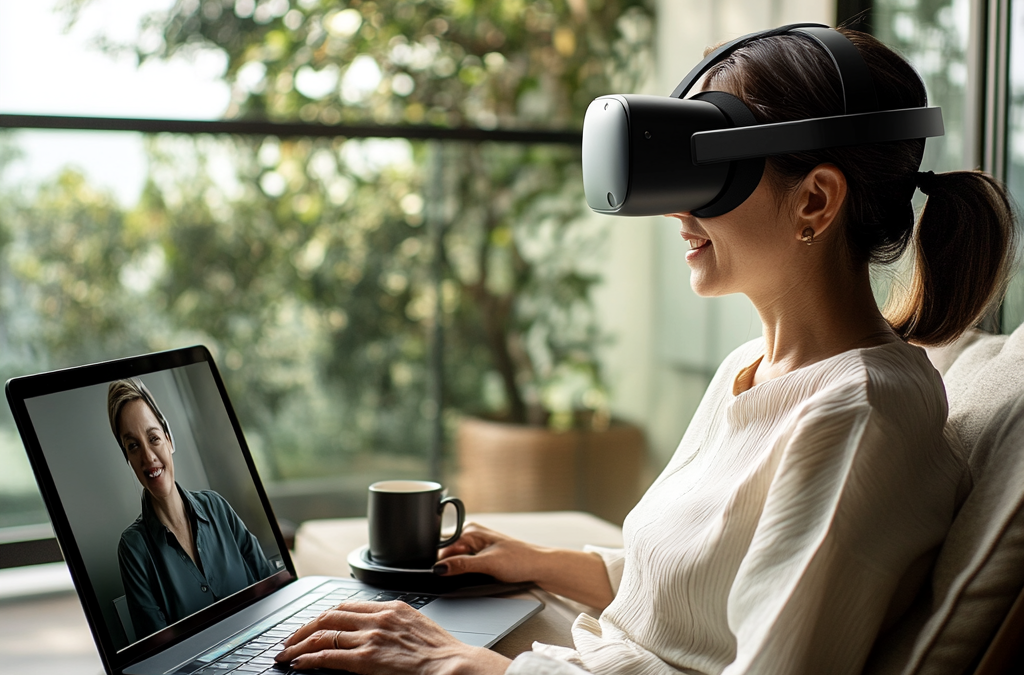Introduction
Depression and anxiety are pervasive mental health disorders affecting millions globally, leading to significant personal distress and societal burden. Traditional therapeutic approaches, while effective for many, often face challenges such as accessibility, stigma, and engagement. In recent years, Virtual Reality (VR) therapy has emerged as a promising intervention, offering immersive experiences that can transform mental health treatment.
Understanding Virtual Reality Therapy
Virtual Reality Therapy involves the use of computer-generated environments that immerse users in interactive, three-dimensional experiences. By engaging multiple senses, VR creates a sense of presence, allowing individuals to explore scenarios that may be therapeutic. This technology has been adapted for various mental health applications, including exposure therapy, cognitive-behavioral interventions, and relaxation training.
Efficacy of VR Therapy in Treating Depression and Anxiety
A growing body of research supports the effectiveness of VR therapy in alleviating symptoms of depression and anxiety:
- Systematic Reviews and Meta-Analyses: A systematic review encompassing 15 studies concluded that VR interventions are effective in reducing anxiety and depression symptoms. The diversity among VR interventions highlights the need for further investigation.
Frontiers
- Cognitive-Behavioral Therapy (CBT) Integration: Several studies have integrated CBT principles within VR environments, demonstrating significant reductions in anxiety and depression symptoms. For instance, a study on Social Anxiety Disorder (SAD) patients found that VR-CBT effectively reduced anxiety and depression, improving quality of life.
Frontiers
- Exposure Therapy: VR has been effectively used for exposure therapy, particularly in treating anxiety disorders. Research indicates that VR exposure therapy (VRET) can address many concerns, and a large body of research decisively shows that VRET is as efficacious for treating these conditions as in vivo exposures.
pmc.ncbi.nlm.nih.gov
VR Experiences Beneficial for Depression and Anxiety
Several VR applications have been developed to target depression and anxiety:
- Virtual Reality Exposure Therapy (VRET): This approach exposes individuals to anxiety-provoking stimuli in a controlled VR environment, allowing them to confront and manage their fears safely. For example, individuals with social anxiety can engage in virtual social interactions to build confidence and reduce anxiety.
pmc.ncbi.nlm.nih.gov
- Mindfulness and Meditation VR: Immersive VR environments can guide users through mindfulness and meditation exercises, promoting relaxation and reducing stress. Studies have shown that VR-facilitated meditation significantly enhances depression and anxiety care.
pmc.ncbi.nlm.nih.gov
- Virtual Nature Walks: VR can simulate calming natural environments, providing therapeutic benefits similar to real-life nature exposure. These experiences can improve mood and reduce anxiety levels.
- Gamified VR Therapy: Incorporating game elements into VR therapy can increase engagement and motivation, making therapeutic exercises more enjoyable and effective. A systematic review highlighted the potential of gamified VR interventions in addressing anxiety and depression.
Frontiers
Duration and Frequency of VR Therapy Sessions
The optimal duration and frequency of VR therapy sessions can vary based on individual needs and the specific nature of the intervention:
- Session Duration: Studies have utilized VR sessions ranging from 20 to 60 minutes. The appropriate length often depends on the type of VR experience and the individual’s comfort level.
- Frequency: Treatment frequency varies across studies, with sessions administered multiple times a week over several weeks. Consistent and regular VR therapy sessions are associated with sustained symptom relief and functional improvements.
Timeframe for Observing Symptom Alleviation
The onset of symptom relief from VR therapy can vary:
- Short-Term Relief: Some individuals may experience immediate reductions in anxiety during or shortly after VR sessions, particularly with relaxation-based interventions.
- Long-Term Relief: For depression and chronic anxiety conditions, sustained engagement with VR therapy over several weeks has led to significant and lasting symptom reductions. For instance, a study on VR-CBT for Social Anxiety Disorder patients demonstrated improvements in anxiety and depression symptoms, as well as quality of life, over the treatment period.
Frontiers
Conclusion
Virtual Reality Therapy represents a promising and innovative approach to managing depression and anxiety, offering immersive, engaging, and effective interventions. As technology advances and more research emerges, VR therapy is poised to become an integral component of comprehensive mental health treatment strategies.

